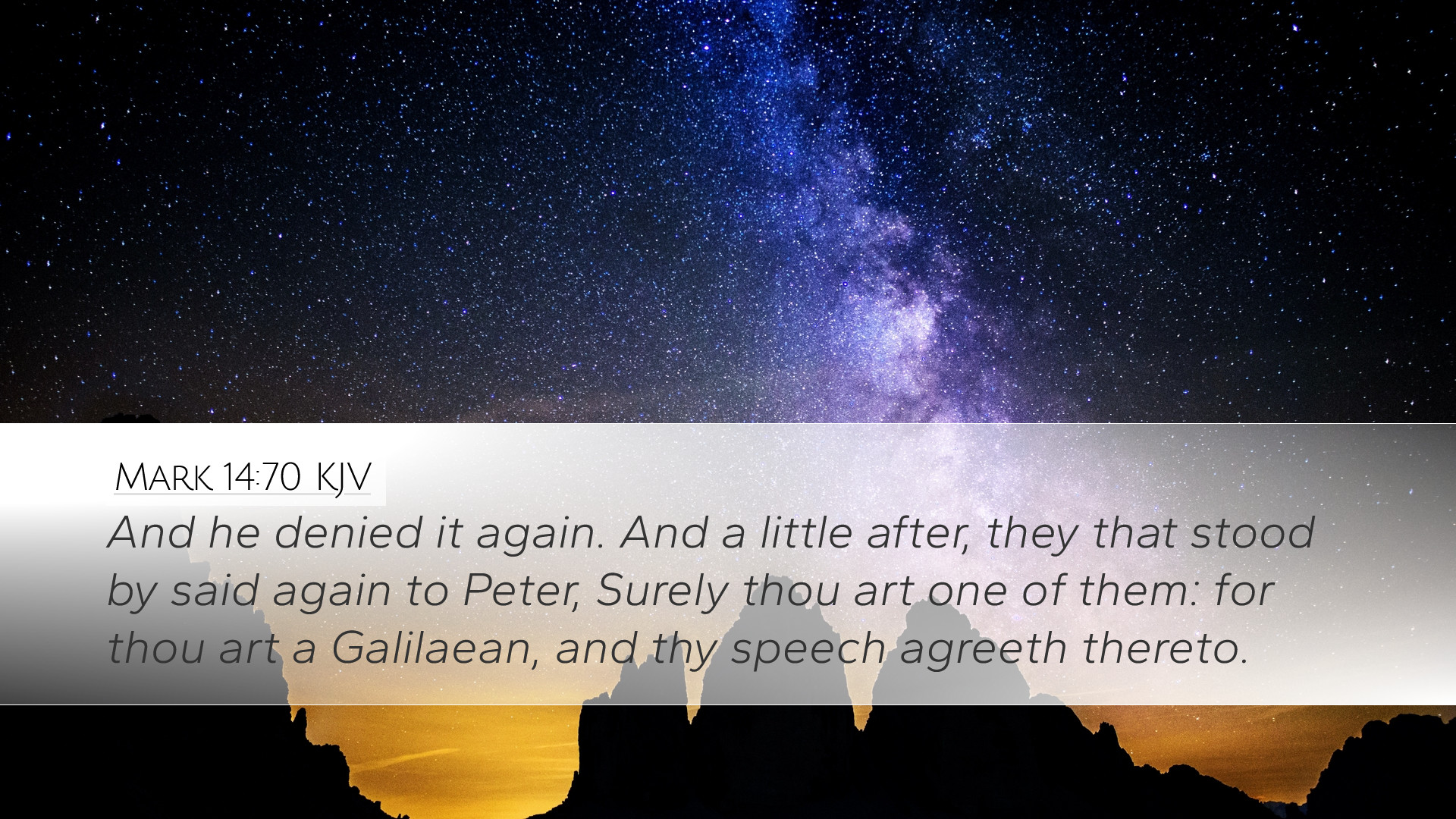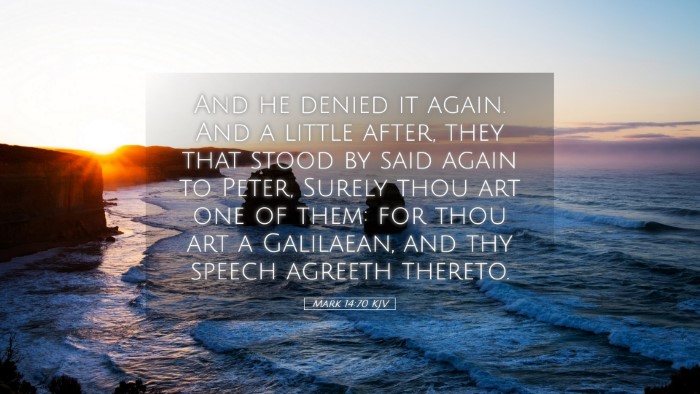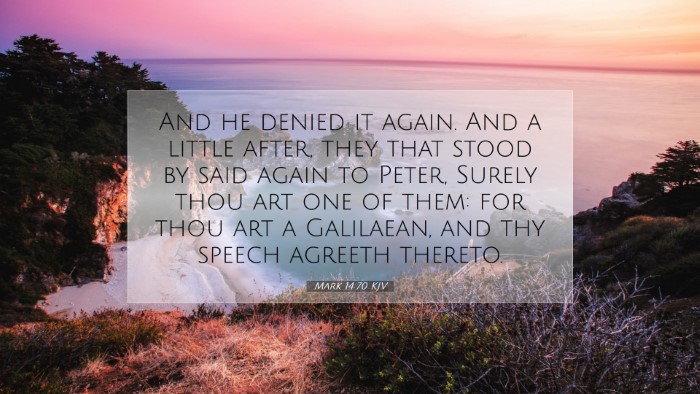Commentary on Mark 14:70
Mark 14:70 recounts a pivotal moment in the life of Peter during the trial of Jesus. The verse states:
"But he denied it again. And a little later those who stood by said to Peter, 'Surely you are one of them; for you are Galilean.'" (Mark 14:70, NKJV)
Contextual Analysis
This moment occurs during the night of Jesus' arrest when Peter follows Him to the high priest's courtyard. It is significant not only for its immediate context but also for the broader implications it has for understanding human weakness and divine grace.
The Setting
Peter's denials take place against the backdrop of Jesus' pending trial. Earlier, in Mark 14:27-31, Jesus predicts Peter's denial, showcasing both the foreknowledge of Christ and the frailties of humanity. This impending crisis serves as the soil from which Peter's fearful response grows.
Insights from Public Domain Commentaries
Matthew Henry's Commentary
Henry highlights the inconsistency of Peter's character throughout this crucial moment. He notes:
- A strong start: Peter's initial allegiance to Jesus, drawing his sword in an attempt to defend Him (John 18:10).
- A tragic fall: His subsequent denial, driven by fear of human consequence instead of divine allegiance.
- Recognition of guilt: In the face of increasing accusations, Peter's own denial becomes more pronounced. Henry suggests that this reflects the nature of the fall - an elevation to pride followed by a swift descent into shame.
Albert Barnes' Notes on the Bible
Barnes provides a perspective on Peter’s Galilean identity and its implications:
- The phrase "you are Galilean" reflects not only Peter's geographical roots but also a cultural marker that would have made his allegiance to Jesus more recognizable.
- Barnes comments on the tendency of the people to associate accent and regional characteristics with broader identity, suggesting that Peter's speech would have betrayed his connection to Jesus.
- Barnes contrasts Peter's position before the crowd—fearful and denying—with his boldness during Christ's ministry, emphasizing how fear can alter one's identity.
Adam Clarke's Commentary
Clarke delves into the psychological aspects of denial:
- He notes how denial can stem from fear and the instinct for self-preservation. In this moment, Peter succumbs to fear, reflecting the struggle between faith and human frailty.
- Clarke further emphasizes the contrast between Peter's earlier claims of loyalty and his public denial. He points to the importance of vigilance in one's spiritual life, warning that confidence in our faith can lead to spiritual slumber.
- Pragmatically, Clarke highlights the communal aspect of denials, noting how Peter is not alone in his failure; such moments often resonate with our collective human experience.
Theological Reflections
This verse opens up several avenues for theological discussion:
- Human Weakness: Peter's denial serves as a stark reminder of the human condition. All believers must grapple with the reality of human frailty, echoing Paul’s words that “when I am weak, then I am strong” (2 Corinthians 12:10).
- Identity in Christ: The questioning of Peter's identity speaks to the larger Christian theme of knowing who we are in Christ. Our actions may sometimes betray our identity, but we are still called to remember our foundational relationship with Christ.
- Grace and Restoration: Ultimately, Peter’s denial does not lead to his rejection but sets the stage for restoration. His story is one of grace, suggesting that no failure is beyond the reach of God’s forgiveness.
Practical Applications
For pastors and church leaders, Mark 14:70 encourages several practical applications:
- Encourage honesty and vulnerability in the church community. Providing a safe space for believers to share their struggles helps combat the isolating nature of denial.
- Teach about the importance of spiritual vigilance, especially in times of trial. Utilize Peter’s story as an analogy for the necessity of steadfast faith amidst temptation.
- Affirm the hope of restoration. Just as Peter was restored (John 21:15-19), emphasize that failure is not the end for believers but rather a part of their journey towards deeper faith.
Conclusion
Mark 14:70 succinctly encapsulates a moment of profound personal failure contrasted with the overarching message of hope found in the narrative of Christ. While Peter's denial speaks directly to the human experience of fear and weakness, it also extends an invitation to explore the depths of grace. The insights gathered from public domain commentaries provide a rich tapestry for understanding not just this verse, but the transforming power of faith in Jesus Christ.


